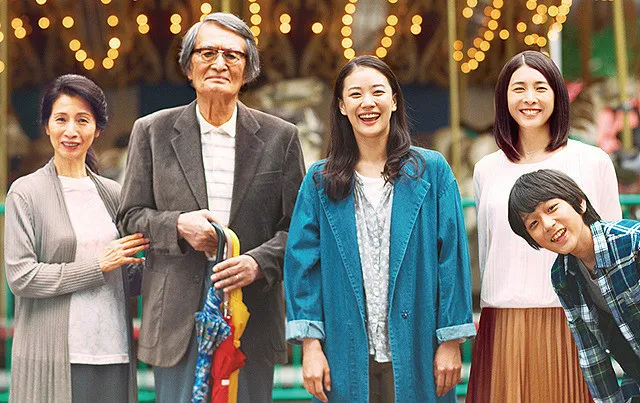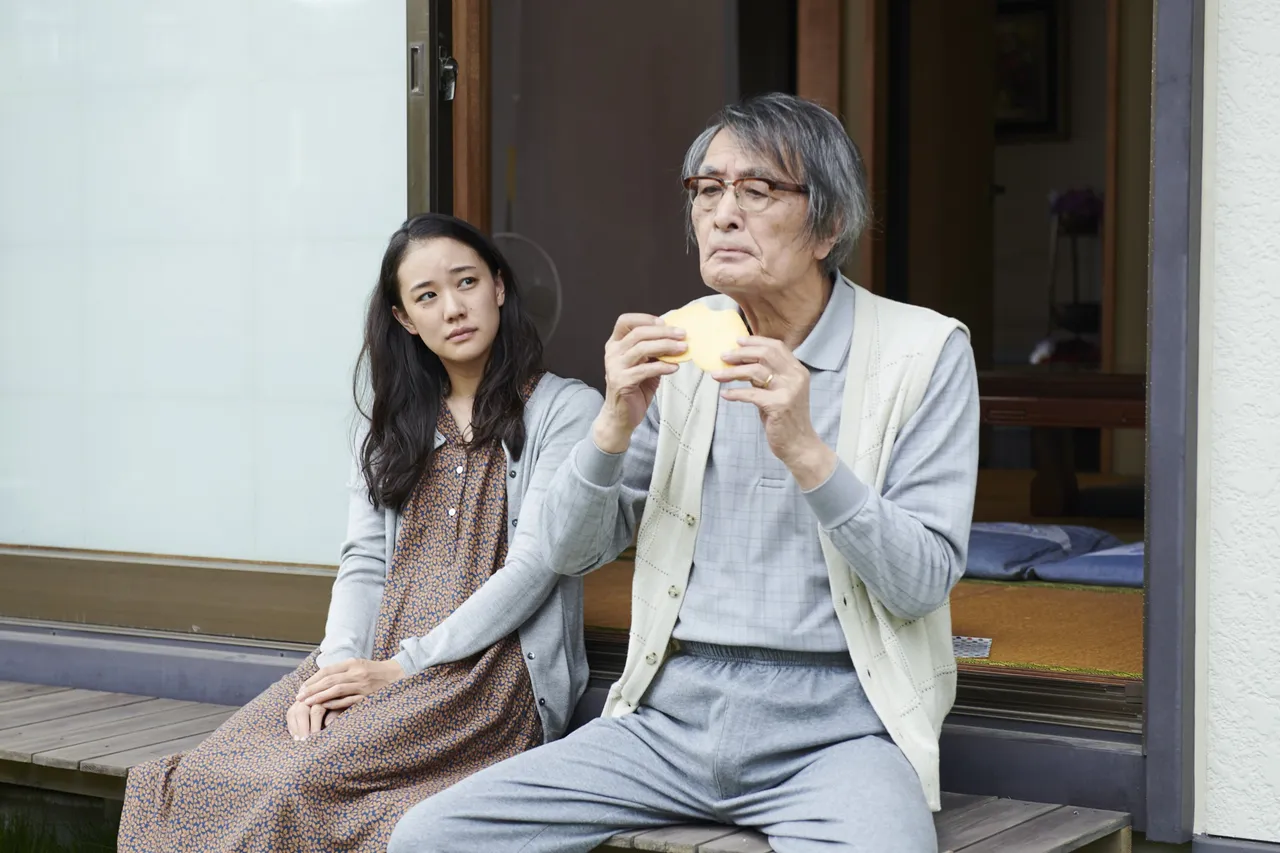
A Long Goodbye is a drama directed by Ryota Nakano, and stars veteran Japanese actor, Tsutomu Yamazaki in the lead role as Shohei Higashi, an old retired principle suffering from dementia. The film documents the slow decline of Shohei's mental faculties due to the disease, and the impact that it has on both his own life and the lives of his family members.
The aforementioned family consists of a very loving and supportive wife and their two grown daughters. The eldest lives in America with her husband who works as a marine biologist, and together they have a young son. The eldest struggles daily with adapting to her new home in the States and feels frustrated at a husband who prioritizes his work over raising his son or supporting his wife. It is left to her to travel back and forth between the States and Japan to fulfill her duty as the eldest daughter in supporting her parents. On the other side is the youngest daughter, a talented cook with dreams of one day owning a restaurant. Aside from part-time work, she cooks and sells curry from a food truck, and continues to try and balance a challenging professional life with an equally challenging personal life.
The film does well in showing the immense challenge and tragedy of dementia, and how it slowly takes all from those who suffer from it. Shoehei slowly starts to lose the ability to remember the members of his family; he struggles to realize the familiarity of his surroundings, and even starts to forget how to perform simple, everyday functions. But despite this Nakano attempts to capture very crucial silver linings in the film, showing that happiness is hard-fought and comes from a thick brush of difficulty and pain. Despite his declining condition, the odd moments of awareness and recollection of his memories create a joy that is tremendously valuable and precious.

I read the film as one that also challenges our idea of personal identity and demonstrates who we are as people. That we are indeed identified by our physical appearance and collection of memories that tie us to our pasts and allows us continuity in the future. But we are also the collective memories of family and friends, and we are also linked to a larger national identity, as demonstrated with the eldest daughter who struggles with a family that identifies less with Japanese culture and more with American culture. It is these concepts that are so well communicated in the film, showing that even as Shoehei forgets, his family never does and they add all the significance and beauty to his achievements, his character, and his past. A man once stern, traditional and perhaps overbearing of his children, becomes vulnerable, supportive and loving due to his affliction, and it's a reminder that it is through these challenging times that opportunities are given for families to become closer.
The film is heartwarming and sincere. It does well in showing how a terrible disease is conceived within a different cultural context, and the characters perform well in their respective roles. I did, however, feel that the parts filmed in America detracted from the quality of the film. The English acting is incredibly poor and feels clichéd and very scripted. Even the English of the young son doesn't improve after years of living in the country. The film's ending also left a lot to be desired and leaves a bad mark on an otherwise decent film.
Certainly not the best drama I've ever seen, but I still thought A Long Goodbye did a lot right and is still a good watch with profound subtleties and wonderfully touching moments. Happy viewing :).
More Info:
Website: A Long Goodbye
Score: AA
Out of 10: 7

